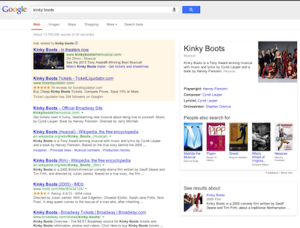FTC To Search Engines: Do A Better Job Of Labeling Paid Search Results As Ads
 A decade ago, the Federal Trade Commission told the major Internet search engines that they should be more transparent about search results that received premium placement because the advertiser paid for it. The companies eventually obliged, but the FTC says that search engines have backslid and begun being less-than-transparent again, and that they could still do more to distinguish between ads and organic search results.
A decade ago, the Federal Trade Commission told the major Internet search engines that they should be more transparent about search results that received premium placement because the advertiser paid for it. The companies eventually obliged, but the FTC says that search engines have backslid and begun being less-than-transparent again, and that they could still do more to distinguish between ads and organic search results.
In letters sent to Google, Yahoo, Microsoft, and more than a dozen other search engine providers, the FTC warns that while engines are generally using shaded boxes to highlight paid-for results, it’s noticed that “increasingly, search engines have introduced background shading that is significantly less visible or ‘luminous’ and that consumers may not be able to detect on many computer monitors or mobile devices.”
The FTC also alleges that search engines have gradually decreased the size and prominence of the text used to label the results as advertising.
As such, the agency has recommended that the shading around these ads should be more prominent and have a more defined border. Additionally, search engines need to “use language that explicitly and unambiguously conveys if a search result is advertising” and that this text should be in a size and font that consumers can clearly see.
And search engines should be consistent about what they call ads, argues the FTC. A sponsored search result is effectively the same as a banner ad, so they should both be labeled accordingly.
“Using different terms to label various types of advertisements risks confusing consumers,” writes the FTC.
While these are all recommendations, and the FTC is not requiring that the search engines make these changes to their templates, the agency does point out that “failing to clearly and prominently distinguish advertising from natural search results could be a deceptive practice.”
Want more consumer news? Visit our parent organization, Consumer Reports, for the latest on scams, recalls, and other consumer issues.

